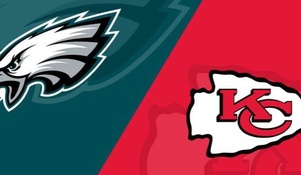Killing the Messenger

“Killing the Messenger" is a phrase that is often used to describe the act of lashing out at the bearer of bad news. Until the advent of modern telecommunications, messages were usually delivered by a human emissary. During wartime, the messenger was sometimes killed for delivering an unpopular message.
Sometimes I feel like I’m that messenger, especially during the times when I’ve written articles about NFL player lawsuits.
When we were suing the NFL Players Association over the Group Licensing Agreements, I was often dragged under the bus for fighting against the Union.
When we sued the NFL over the Prescription Drug issue, I was told by some players that no one twisted my arm and made me take Lidocaine injections and take Indocin and Phenylbutazone or "Butes" - which has since been banned by the FDA.
When we were suing the NFL over the Publicity Rights issue, I was criticized for advising former players to opt out of the Settlement and for encouraging former players to file appeals. Altogether, 2,000 players opted out of that Settlement.
When we were suing the NFL over the Concussion issue, I was criticized for advising players not to opt out of the Settlement. A mere 200 players opted out.
Now I’m being criticized for asking former players to drop their appeals.
When you’re a blogger like I am, you better be thick-skinned and you better be ready to roll with the punches. I don’t have a problem with anyone sharing their opinions and engaging in a lively debate, but it’s hard to understand why some people won’t listen to reason and accept certain facts that are relevant to the discussion.
When I told former players that the appeals of the Concussion Settlement would delay the awards to the men that have already been diagnosed with early or moderate dementia, ALS, Parkinson’s and Alzheimer’s disease, some accused me of using a “guilt trip” to get them to drop their appeals.
If they’re feeling guilty, maybe it’s because of the fact that an appeal will delay awards to the guys that need them the most.
When I told former players (and in some cases their wives) that medical doctors, researchers and the scientific community in general have agreed that there is no valid test to detect CTE in living persons and that there is still no conclusive evidence that there is a connection between CTE and suicide, some told me I should get my head checked – and they didn’t mean that in a nice way.
Unfortunately, some people are in total denial of the research and studies that have been conducted and statements that have been made - like these ones from the research paper entitled “Current Understanding of Chronic Traumatic Encephalopathy” authored by Christine Baugh, Robert Stern, Clifford Robbins and Ann McKee:
“Although significant media attention has been brought to this disease, there is relatively little known regarding the pathobiological mechanisms underlying CTE, and a large number of questions remain."
“The question of suicide in CTE remains contentious. Several CTE case series have included victims of suicide. However, our lack of understanding of the population incidence of CTE limits our ability to attribute a complex and multifactorial behavior such as suicide to underlying CTE proteinopathy. The issue is further complicated considering that well established risk factors for suicide and suicidal ideation such as substance use and depression are often comorbid in cases of CTE . The current literature does not provide means to separate the contribution (or lack thereof) of these different potential factors to the act of completing suicide. Further, premature association between repetitive brain trauma and suicidality could result in a ‘self-fulfilling prophecy’ prompting wider suicides in exposed individuals irrespective of contribution (or noncontribution) from CTE symptoms. Available scientific evidence cannot wholly support the notion that CTE causes suicidal thoughts or behaviors, and such assumptions or assertions should be avoided without further evidence.”
These types of statements by prominent doctors and researchers were being used by the NFL to bolster their argument that CTE should be excluded from the Settlement. The lawyers representing us would have lost this specific argument if the case had gone to trial because the current science just wasn’t on our side.
Our lawyers surmounted the CTE challenge by wisely creating a settlement that compensates former players based on their symptoms.
A Sporting News article said it best: "Players will be part of the payment pool just for showing the commonly-recognizable signs of CTE, without having to prove they have a disease that is still subject to medical research, widespread theory about the cause, and potential challenges by the NFL and its experts."
Most of the appeals will focus on getting CTE included in the Settlement, but Judge Brody has already addressed those objections in the opinion she issued when granting final approval of the settlement. Just read her comments beginning at page 78.
Now that a few more former players have unfortunately decided to appeal the Settlement, I would like to offer my thoughts and opinions.
I believe that some former players may have been duped by lawyers that are known as “professional objectors.” Professional objectors are lawyers who like to swoop in during the 11th hour of important settlements – usually when benefits or compensation for many injured parties are at stake – and file frivolous objections or appeals to try and extract some kind of award or fee. It’s a terrible, predatory business model that basically exploits the suffering of injured retired players – the men for whom we started this lawsuit in the first place – for the lawyer’s personal financial gain.
Take John Pentz, for instance, who filed an appeal on behalf of 10 former players. He has been identified as one of these professional objectors by the NALFA (National Association of Legal Fee Analysis) which says “ Well-known class action objectors include Ted Frank of Center for Class Action Fairness, John Pentz of Class Action Fairness Group and Lawrence Schonbrun of Class Action Watch, Edward Siegel of Law Offices of Edward Siegel and Eduardo Cochran of Law Offices of Eduardo Cochran.”
Go to the NALFA website at this link: Professional objectors and read the NFALA’s 10 reasons to oppose class action objectors.
Those are 10 good reasons why Mr. Pentz and the other attorneys who have appealed this settlement deserve every ounce of criticism that comes their way. But for me, the worst part is that these lawyers - who were not even involved in this lawsuit when courageous men and women stepped forward to sue the NFL in the first place - have managed to convince a handful of retired players into going along with these baseless appeals.
And it isn’t me calling the appeals baseless. Federal Judge Anita Brody did so when she overruled all objections to the settlement in her incredibly powerful opinion.
Out of 20,000 former players, a handful of players and their lawyers have decided that they don’t like the message she sent when she rendered her opinion.
Please, don’t blame me for passing that message on to you.






